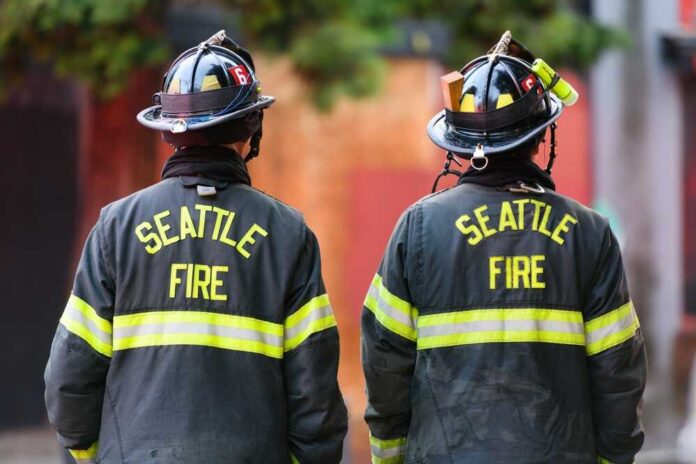
While citizens in need might prefer that first responders provide assistance without considering their racial or gender identity, officials in Seattle, Washington, insist that its fire lieutenants become inculcated with leftist ideology including critical race theory.
According to reports, firefighters interested in receiving a promotion must first demonstrate their social justice competency as defined by a written test influenced by far-left activists like CRT evangelist Ibram X. Kendi.
In order to even be considered for the position of lieutenant, the Seattle Department of Human Resources requires a certain score on the examination. Those who achieve higher marks are reportedly put on the fast track for a promotion.
EXCLUSIVE: To be a lieutenant in the Seattle Fire Department you must be an expert in Critical Race Theory
Part of the required reading is CRT peddler Ibram X Kendi's 'How to be an Antiracist,' material from DEI 'expert' Pamela Fuller & the 'Memoir of a Transgender Firefighter' pic.twitter.com/Y4rlzPZKNp
— Ari Hoffman (@thehoffather) April 18, 2023
As one might expect, much of the test is devoted to measuring knowledge about the fundamentals of the job itself, but the lieutenant exam reportedly features nearly as many questions dealing with social issues.
The test’s study materials include controversial books like Kendi’s “How to be an Antiracist,” the autobiographical “Both Sides of the Fire Lane: Memoirs of a Transgender Firefighter” by Bobbie Scopas,” and another memoir titled “A Leader’s Guide to Unconscious Bias and Fighting Fire.”
The city’s focus on inclusion — at the potential detriment of competency — is not altogether surprising given Fire Chief Harold Scoggins remarks last year lamenting the fact that the agency “overwhelmingly” consists of White men.
The previous year, Scoggins joined a group of other city officials in pushing for revamped training exams that were specifically designed to downplay the importance of actually knowing how to do the job.
According to a report the authorities released at the time, “tests that focus on how well applicants know the system and the job tend to favor those who make up the overwhelming majority of the fire service workforce, white men.”
Instead of testing for relevant knowledge about being a firefighter, the authorities advised: “Questions that ask more about the candidate’s character and values, rather than knowing the ins and outs of the job, can be beneficial in advancing more women and people of color.”
For Wayne Johnson, a retired Seattle firefighter who had helped develop earlier training exams, the current trend “has nothing to do with firefighting” and “everything to do with social engineering.”













